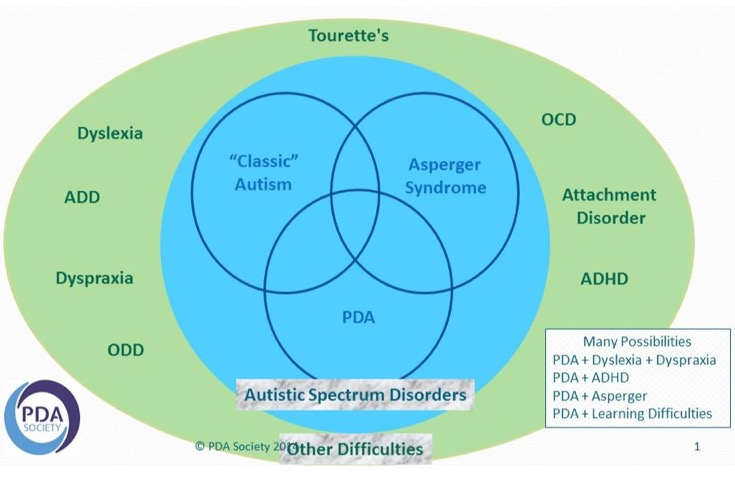Suggestibility Assessments
How Does Suggestibility, Conformity, Obedience and Compliance Result in False Confessions or Illegal Behaviour?
"Suggestibility has been shown by psychologists to cause false confessions. Psychologists have demonstrated conformity, obedience and compliance can cause illegal behaviour. An assessment by an expert psychologist of a defendant who is considered to be suggestible or compliant is a crucial part of constructing a defence that ensures there are no miscarriages of justice."
What is a False Confession?
A false confession occurs when a defendant, admits to a crime that they did not commit. The psychological process of false confessions is complex. However, the research reviewed by our expert psychologists and their practical experience of working with defendants and in the criminal justice system demonstrates that some individuals are psychologically more likely to confess to crimes than others. There are often psychological factors which can be objectively measured in some defendants which show a propensity to make false confessions to crimes that they did not commit.
There are several reasons why an individual might make a false confession, for instance, a defendant may make a false confession to attempt to mitigate the possibility of receiving a harsher sentence when, although they are innocent, the factual evidence does not support their innocence. Sometimes, defendants may make a false confession to protect a friend or relative who committed the crime. In other instances, a defendant may confess to something they did not do because they are suffering from a mental disorder. Defendants may make a false confession in response to a bribe from a third party. False confessions also frequently occur when individuals are easily led, have low IQ or personality factors resulting in them feeling pressurised into admitting to offences they have not committed.

How Does Offender Suggestibility Impact on the Quality of Evidence?
"In legal psychology, suggestibility relates to the phenomenon that is found when a subject under interrogation yields to leading questions when pressure is applied and shifts their answers when interrogative pressure is applied. Put another way; the psychologically suggestible suspect admits facts which are incorrect under pressure. This is often called interrogative suggestibility. For lawyers, the concept of suggestibility is vital because it is critical that the court has robust evidence to show the defendant’s guilt or innocence. Suggestible defendants may, therefore, admit offences that they did not commit because of their suggestibility, the quality of their evidence under cross-examination in court is likely to be reduced, and they are unlikely to come up to proof."
Suggestible witnesses often possess one or more of the following characteristics:
- A low IQ or learning disability;
- Submissive personality;
- Conforming personality;
- Are suffering from a mental illness;
- Are juveniles; and
- A low Mental age
The leading measure of suggestibility is a psychological test called the Gudjonsson Suggestibility Scale (GSS). Gudjonsson Suggestibility Scale Download. Elevated scores on the GSS are correlated with suspects who are likely to make false confessions under cross-examination or interrogation.
Advanced Assessments’ expert witness psychologists use the GSS in combination with other psychological tests, such as personality tests, IQ test as well as a structured clinical interview, the Wechsler Memory Scale, the Test of Memory and Learning, observations and content analysis of the relevant documents to objectively assess whether the suspect is suggestible. By using this multi-method approach, our expert psychologists can gather robust and reliable objective data to clearly show whether a subject is, in fact, suggestible. In this way, our expert psychologists can use reliable and valid evaluations of suggestibility that rule out attempts to fake suggestibility and meet the very high standards required under the expert’s overriding duty to the court.
Why is Police Suspect Suggestibility Important in Legal Proceedings?

Our expert psychologists assess police suspect suggestibility to establish whether a defendant is likely to produce false low-quality evidence and false accounts when interrogated by the police or cross-examined in court. The GSS is sometimes used along with other psychological tests to determine whether a defendant is fit to plead and fit to stand trial.
An assessment of suggestibility is also essential when determining whether eyewitness evidence is reliable in criminal, civil, employment tribunal, personal injury and other legal proceedings.
How Does Conformity, Compliance and Obedience Differ from Suggestibility?
Conformity, compliance and obedience are different to the psychological concept of suggestibility. The concept of obedience and conformity can explain why defendant’s commit offences under the orders of individuals who they regard to be authority figures. The psychological phenomenon of obedience was demonstrated by Stanley Milgram of Stanford University. Milgram's research showed that ordinary people would obey authority figures and administer lethal doses of electric shocks, which would apparently kill the person on the receiving end. This work was ultimately used to explain the war crimes committed during the Second World War.

The concept of conformity, on the other hand, is used to explain the psychological process where individuals will change their behaviour and views to fit in with the dominant view of the group, to such an extent that they may give factually wrong information because of group pressure. The leading study was carried out by Solomon Asch, who demonstrated how susceptible individuals are to group pressure.
Find Out More About the Psychology of Suggestibility, Conformity and False Confessions
Suggestibility
Conformity, Compliance, and Obedience
False Confessions
Fitness to Plead
Test of Fitness to Plead in R v Pritchard
To determine whether a Defendant is fit to plead and fit to stand trial the information gathered during the expert witness psychologist assessment must be analysed in the context of the fitness to plead and fitness to stand trial test developed from the case of R v Prichard (1836) 7 C. & P. The test has developed over the years but can be stated as follows:
Does the Defendant Understand the Nature of the Offence?
Part of the assessment of fitness to plead is to test whether an individual understands the nature of the charges they face.

Is the Defendant Able to Comprehend the Evidence?
Defendants may have significant literacy and mental health problems. However, they may be still fit to plead with an intermediary to break the evidence down into a digestible form.
Is the Defendant able to Provide Advice to His or Her Legal Team?
Our expert psychologist evaluates whether a defendant can provide a coherent explanation of events. A defendant may be fit to plead if jury would be able to make adequate sense of the defendant’s evidence.
Additional time and additional support may need to be provided when a defendant is giving his evidence in court.
Typically, our expert psychologists consider whether there are any no apparent signs of delusions or hallucinations. If a defendant can instruct his legal advisers, even with considerable assistance they may be fit to plead.
Is the Defendant able to Understand the Course of Proceedings, So as to Make a Proper Defence?
Connected with this, under the Pritchard criteria, is the defendant’s ability to make a proper defence. Whether or not his version of events is accepted is an issue for the jury to determine.
Does the Defendant Understands the Advice, He or She is Being Given?
If the defendant is able to understand the advice and understand the information necessary to consider that advice properly, they are likely to be fit to plead.
Does the Defendant Understand the Legal Process?
Finally, one must as if the defendant understands the legal process. This means do they understand what the function of a judge is and the judge’s role? If the defendant also understands the role of the prosecution and defence barrister they are likely to be fit to plead and fit to stand trial.
Find Out More About Fitness to Plead and Fitness to Stand Trial
Expert Witness Psychologists
Expert Witness Psychologists
What is Psychology?
Psychology is the science of mental life. The discipline is of relevance to professionals working in various areas of the legal profession.

How Expert Witness Psychologists Assist in Criminal Proceedings
Expert Witness Psychologists are often called on by criminal law experts to advise on whether an individual needs an intermediary to participate fairly in the proceedings as either a defendant or a witness for the prosecution. Psychologists often indicate whether an individual needs further evaluation to determine whether they are fit to plead. Additionally, psychologists may be able to advise the court whether an individual was culpable of an offence that they have been charged with because of an underlying psychological condition.
Psychologist expert witnesses are often called to give evidence in parole hearings, and advise parole boards whether a prisoner is suitable for parole.
How Expert Witness Psychologists Assist in Employment Tribunal Proceedings
Psychologist expert witnesses also assist in employment tribunal proceedings. They are often called on to advise on whether an assessment selection process or redundancy process was discriminatory. They also advise Employment Tribunal is on whether or not the claimant before the tribunal had a disability within the meaning of the Equality Act 2010. Individuals in the workplace often suffer from a wide range of disabilities including, depression, anxiety, dyslexia, and ADHD. These disabilities are often hidden but in certain situations can adversely affect individuals gaining employment and staying in a job.
How Expert Witness Psychologists Assist in Personal Injury Proceedings
In personal injury proceedings, expert witness psychologists are often called on to assess the cause of psychological trauma, determine how long it will take the claimant to recover. Expert psychologists working in this area frequently carry out neuropsychological assessments of brain injury. In all areas where psychological is carried out expert psychologists will often see to validate the findings by using a range of psychological techniques to detect malingering, and symptom exaggeration.
How Expert Witnesses Psychologists Help In Care Proceedings and in The Family Court
Psychologist expert witnesses are often called upon by social services departments and families in private and public law care proceedings. They carry out assessments of fitness to parent, whether the child subject to the proceedings has been harmed or is likely to be harmed by the parents or the likely disputes that have taken place between the parents. They are frequently asked by both social services departments, fathers and mothers to determine the level of attachment and to advise whether the child has suffered parental alienation (pathogenic parenting).
In family law cases, expert psychologists often carry out risk assessments to determine whether the child would be at risk if there was unsupervised contact unsupervised contact
How Expert Witness Psychologists Assist In Housing Law and Possession Proceedings
Individuals who are subject to possession proceedings, frequently lack the capacity to make a proper defence and conduct their own affairs including issues that might put them at risk of being evicted. Such action can be discriminatory under the Equality Act 2010. Expert psychologists can often advise in these cases, for example where depression or conditions such as hoarding disorder impacts on the ability of the tenant to manage their property.
How Expert Witness Psychologists Help In Education Law
In education cases, expert witness psychologists often assist parents by carrying out assessments to ensure the relevant child has an appropriate Educational and Health Care Plan. Additionally, Expert witness psychologists appear in Educational Needs and Disability Tribunal’s, and also provide evidence in judicial review proceedings when parents challenged the educational provision offered to the child.
Find Out More About Psychologists
Pathological Demand Avoidance (PDA)
Pathological Demand Avoidance in Adults
What is Pathological Demand Avoidance?
People with Pathological Demand Avoidance or PDA are driven to avoid demands due to their high anxiety levels when they feel that they are not in control.
PDA is increasingly recognised as being part of the autism spectrum. Some psychologists refer to it as a diagnostic profile or sub-type within autism. Individuals with PDA share difficulties with others on the autism spectrum in terms of social aspects of interaction and communication, together with some repetitive behaviour patterns. However, people with PDA often seem to have better social understanding than others on the spectrum
In individuals with PDA, their avoidance is clinically-significant in its extent and extreme nature. Children and adults with PDA can also mask their difficulties, and their behaviour can vary between settings.
PDA is a relatively new diagnosis it is frequently confused with Oppositional Defiant Disorder (ODD) as a diagnosis. PDA as shown in the diagram below from the PDA Society (www.pdasociety.org.uk) PDA falls within the circle of Autistic Spectrum Disorders, whereas ODD does not. There other conditions with frequently cooccur with autism in the green circle.

Figure 1: Pathological Demand Avoidance and its Interplay with Autism
Please note that Asperger Syndrome is now referred to as High Functioning Autism (HFA), although there is still some dispute that they are separate conditions.
There is overlap between most of these diagnoses. The term 'can't help won't' is often used to describe PDA.
PDA Not Yet Recognised in the DSM-5 and ICD-10
Many people are diagnosed with PDA as a condition in its own right. Presumably, this is because they do not meet the full diagnostic criteria for Autism Spectrum disorder ASD. The problem with this approach is that:▪ PDA is not included in the Diagnostic and Statistical Manual - fifth edition (DSM-5)
▪ PDA is not included in the International Classification of Diseases - 10th Edition (ICD-10)
Consequently, if the condition does not appear in the leading diagnostic manuals for psychological conditions some schools and educational institutions may find it difficult to provide support. Many argue that every individual with PDA is autistic.
PDA as a Form of Autism Spectrum Disorder
It is becoming more common for people to receive a diagnosis of ‘Autism Spectrum Disorder (ASD) characterised by extreme demand avoidance.’ Alternatives ways of putting the diagnosis are:
ASD with a PDA profile;
ASD sub-type PDA; or
Atypical autism with demand avoidant tendencies.
Learn more about the key Characteristics of Pathological Demand Avoidance
6 Main Characteristics Pathological Demand Avoidance Are:
Resisting and avoiding the ordinary demands of life;
Using social strategies as part of the avoidance;
Appearing sociable on the surface but lacking depth in their understanding;
Excessive mood swings and impulsivity;
Being comfortable in role play and pretence, sometimes to an extreme extent and often in a controlling fashion; and
Obsessive’ behaviour that is often focused on other people, which can make relationships very tricky.
Individuals with PDA have Many Positive Characteristics
One should not lose sight of the fact that individuals with PDA can be quite positive and have many strengths. They can interact well socially and can be quite talkative. They are said to have charm and can be warm and affectionate. Their need to take control means that they are often seen as quite determined. They can have a rich imagination and are frequently described as creative and passionate.
8 Top Tips on How to Support Individuals with Pathological Demand Avoidance
Pathological Demand Avoidance Treatment
1. Flexibility
Always make sure that your day activities are flexible, the the individual with PDA child might not want to do them in a particular order they might want to do it in a completely different order. Allow that flexibility and you will find that the individual with PDA will be able to cope with the anxieties of the day a lot easier.
2. Control.
People with PDA need to feel so they are in control like autism, and other ASDs anxiety rules the day for them if they do not feel in control of a situation the sense of anxiety rises and then they feel panicky and fearsome of what is going to happen; particularly when it comes to change for PDA individual the fear of not being in control generates a resistance to what if the change or a request you might want them to do something they might not be able to do or not want to do it because they might get it wrong.
3. Ease Anxiety.
If changes needed, then talk the PDA individual through it you might want to talk to them you might want to write it down in steps like bullet points or you could use images or pictures either way show the PDA individual that there is a beginning a middle and the end of a request or activity you want them to carry out; this will ease the anxiety for the individual
4. Unravel the Fear
PDA individuals often see the worst in every situation they will always think of the worst thing that could possibly happen; reassure the PDA individual that there is nothing to worry about - do not be confrontational.
5. Building up Self Confidence
A lot of PDA individuals have a problem with self-esteem and confidence they think that if they do whatever it is they are being asked to do they are not going to do it properly; it might be that they feel they will be laughed at. They might feel embarrassed. There is a huge amount of anxiety that is behind these inner fears the best thing to do is boost up PDA individual’s confidence tell them exactly what they get right, tell them what they are good at.
6. Make the change outcome beneficial
Help the person with PDA see that the change out is beneficial to them, and not to you. The key here is to make them feel that they are making the decision themselves, make them think that actually the decision is their decision. Always make the outcome look beneficial to them and not to you.
7. Provide a Responsibility
We know that people with PDA love to be in control of their own world given the responsibility to do something to help themselves this will make them feel as though they are completely in control of their being and their body and, therefore, the outcome. The secret to it is careful wording in the request do not bark an order at them but suggest a way of doing something and add the element of responsibility into that request so they feel as though they are doing something for themselves.
8. Set boundaries
People with PDA need to know there will be a beginning a middle and an end. Help them to think what it will be like to achieve the end result. Provide them with a sense of responsibility.
Learn More About Pathological Avoidance Syndrome
What is Pathological Demand Avoidance?
Pathological Demand Avoidance
Pathological Demand Avoidance – One Family's Story
Pathological Demand Avoidance: Behavioural Strategies
